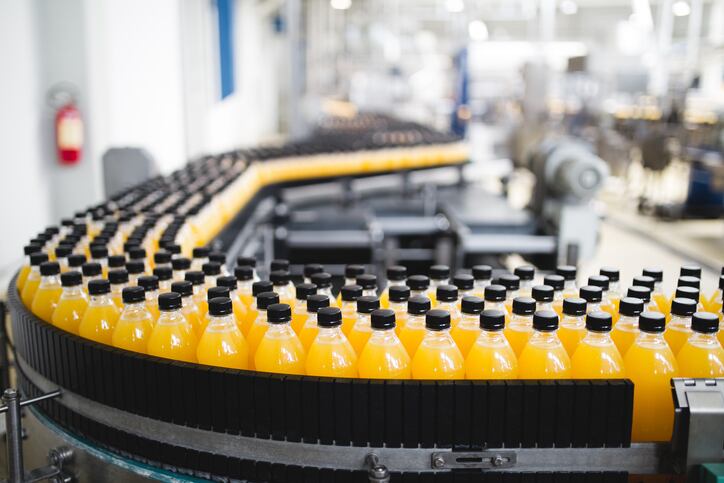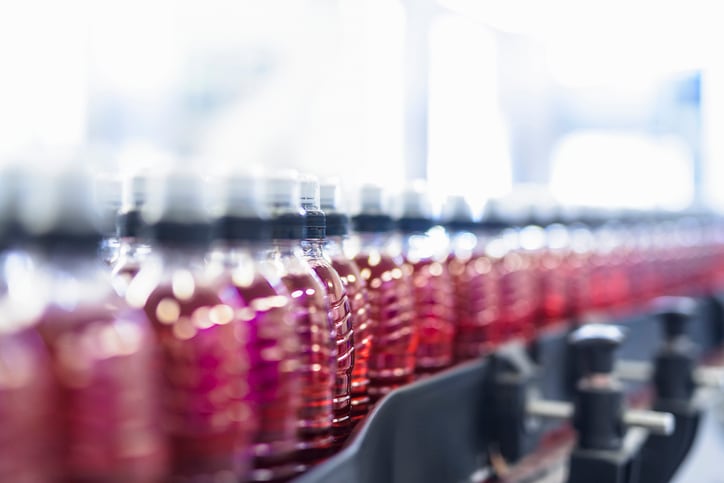The beverage industry is in a period of change. The market is becoming more diversified than ever: with new options continuing to emerge.
That’s a trend closely followed by Rebecca Marquez, director of custom research at The Association for Packaging and Processing Technologies (PMMI), who tracks the latest beverage trends and how they’ll shape the market and production technologies moving forward.
“The beverage industry has been on the road to transformation over the last decade, moving from a space dominated by companies like Coca-Cola and PepsiCo to one where emerging brands are responding to what consumers expect from their drinks,” says Marquez.
“Today’s beverage industry focuses on health, wellness and innovation: driven by changing consumer preferences.
“In fact, brands interviewed by PMMI, The Association for Packaging and Processing Technologies, for its 2025 Beverage Industry Packaging Trends report stated that they expect to see industry growth due to continued consumer interest in beverages like THC-infused drinks, mocktails and mixers, nutraceuticals, and non-sugary beverages."
This diversification is a key opportunity for beverage brands and manufacturers, says Marquez.
“For example, a few decades ago, most consumers didn’t like the idea of drinking non-alcoholic beer, and premium bottled iced coffee drinks were limited in number. However, new consumer trends have created an opportunity for beverage leaders to reinvent their brands.”
Here, Marquez points to the Publicis Sapient report, Taking on 2025: Top Trends Shaping the Beverage Industry.
“The trend of younger adults consuming less alcohol, in contrast to 20 years ago, continues. In fact, many consumers, not just young people, prefer mid-strength alcohol since they perceive it to be healthier, with fewer calories and a lower ABV (alcohol by volume) content.
“Driven by the pursuit of well-being, consumers also gravitate toward nutraceutical beverages (a category within the broader trend of functional drinks), according to Publicis Sapient. Brands ranging from coffee to carbonated beverages are embracing this trend, infusing their product mixes with new ingredients and functional beverages.
“Publicis Sapient’s report states that the demand is not just for a substitute to traditional sodas, but for something completely different. For instance, consumers are interested in beverages that contribute to focus, relaxation, and overall wellness without losing the effect and sophistication of alcoholic beverages.
“But the rise of non-alcoholic beverages doesn’t mean traditional alcohol categories are fading. Wine remains a cultural and economic powerhouse, although it faces challenges, ranging from tariffs to declining demand.”
Challenges arise amid change
Beverage manufacturers are ready to embrace the new trends.
But at the same time as they adapt to new technologies and operational models, producers face economic pressures, labor shortages, and regulatory changes, according to EY’s Trends in the Beverage Industry: Navigating Change and Innovation report.
Industry success requires innovation and optimized supply chains, as well as social media- and data-driven marketing strategies, even as market fragmentation complicates the landscape with emerging brands challenging established players, says EY’s research.
To navigate these pressures, companies must optimize their supply chains and improve operational efficiency, using technology to streamline processes.
Top opportunities and challenges
“PMMI’s beverage industry study also reveals that technical integration will have the most positive impact on beverage packaging and processing operations in the coming years,” states Jorge Izquierdo, vice president, market development, PMMI. “Inflation, supply chain disruptions, regulatory compliance, and talent acquisition/retention challenges are expected to continue impacting the beverage industry.”
Implementing direct store delivery models can enhance distribution efficiency. At the same time, automation in warehousing and logistics can reduce labor costs and accelerate the time it takes to deliver products into the market, advises EY.
“As the beverage industry evolves, companies increasingly adopt technology to drive innovation. As EY’s report shows, the integration of artificial intelligence (AI) and user experience design into marketing strategies is becoming essential,” says Marquez of PMMI. “AI-driven analytics can help identify emerging trends and consumer behaviors, enabling companies to pivot quickly and launch new products.
“However, while using these technologies opens new commercial opportunities like variety packs, it also puts significant pressure on supply chains, requiring shorter production runs.
“For instance, with newer offerings, a lack of historical demand data makes accurate forecasting difficult. To navigate this complexity, EY states that beverage leaders should put more emphasis on end-to-end planning, with the supply chain playing a prominent role in helping define segmentation strategies. In short, by leveraging data analytics, companies can enhance their forecasting accuracy and optimize their supply chains, ultimately improving their bottom line.
“Although contract manufacturing and distribution may offer greater flexibility and lower costs for beverage producers, technology is essential in optimizing supply chain operations and reducing overhead. The strategy is no longer about digital transformation: it is now about leveraging technology to drive agility and value.”
AI, automation, supply chain technologies
A profusion of AI, automation, and supply chain technologies, as well as solutions for labor challenges, for the beverage industry can be found at PACK EXPO Las Vegas (Sept. 29–Oct. 1; Las Vegas Convention Center).
In addition to 2,300 exhibits, there's more than 100 free educational sessions offered, including:
• Innovation Stages: Seminars on breakthrough technologies and best practices
• Processing Innovation Stage: Sessions on advancements in processing technologies, focused on efficiency and product quality
• Industry Speaks: Discussions on industry trends such as remote access, supply chain, augmented reality, and operational efficiency
• Sustainability Central and the Reusable Packaging Learning Center: Presentations centered on cutting carbon footprints, water consumption, waste, and plastic usage; boosting recyclability; advancing circularity; and preparing for regulatory compliance


